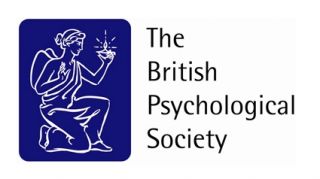Psychiatry
Arguing Over DSM-5: The British Psychological Society Has Serious Concerns About the Manual
The BPS expresses "serious reservations" about the next DSM.
Posted June 20, 2012

Although the American Psychiatric Association recently closed its window allowing comments on proposed changes to the DSM, the organization has yet to report on the field trials it devised for the next edition of the psychiatric manual, themselves meant to support—indeed, serve as a rationale for—the changes it is proposing in the first place.
While this unhappy outcome points to some of the organization’s chicken-and-egg problems with the manual and the disorders it is seeking to adjust or make official, those wanting to respond to the draft proposals have had to do so in the dark, unaware of the results of the field trials and thus whether the proposals draw from them any actual empirical support.
Despite this bizarre situation, itself a travesty of evidence-based medicine, the British Psychological Society, a registered charity with a total membership approaching 50,000, managed to release today a strongly worded response to the proposed revisions, based on the wording now available on the APA's website. The BPS report is called DSM-5: The Future of Psychiatric Diagnosis.
“We are committed,” it stresses, “to providing and disseminating evidence-based expertise and advice, engaging with policy and decision makers, and promoting the highest standards in learning and teaching, professional practice and research.”
For that reason, it would seem highly consequential that the BPS, after careful study of the proposed draft changes, determined that it “still has concerns” about the edition due to appear next spring. The report quotes Dr David Murphy, Chair of the Society’s Professional Practice Board, as saying:
The Society applauds the American Psychiatric Association for engaging in this level of public consultation, and we welcome some of the changes from the previous iteration, such as the deferment of the decision to include the category of "attenuated psychosis syndrome" and to recommend further research.
However we continue to have serious concerns about many aspects of the framework. In our response we have argued that the categorical framework of DSM-V is flawed in that it fails to take account of the evidence for the dimensional spectrum of psychiatric symptoms such as low mood, hearing voices, unusual beliefs, etc., in the general population.
"We have also highlighted," Murphy adds, "significant concerns about [the] lowering of diagnostic thresholds and the validity of 'catch-all' diagnostic categories that exist within DSM-V such as 'ADHD not elsewhere classified,' which we are concerned have poor interrater reliability. We are concerned that both of these aspects lead to the risk of overdiagnosis and thereby potentially unnecessary and potentially harmful treatment with medication."
The report continues with these general comments:
The BPS welcomes recognition that DSM-5 needs further consultation, but does not consider that the updated proposals fully address the serious reservations raised in our response to the 2011 consultation (BPS, 2011).
The validity of the basic categories is assumed, rather than evidenced from research into distress across both psychiatric and "normal" populations which might challenge the appropriateness of the paradigm. In this circular process, both the original suggestions and subsequent modifications are based more on committee decision and public responses than on patterns arising out of the identification of underlying mental phenomena.
In the absence of such signs, judgments about pathology are inevitably grounded in subjective and cultural norms. This is particularly obvious in the case of ‘Personality Disorders’ …
The full response of the British Psychological Society can be found here. All told, it makes for an important, powerful critique of the proposed changes to the DSM.
Related post: "DSM-5 Controversy Is Now Firmly Transatlantic."


